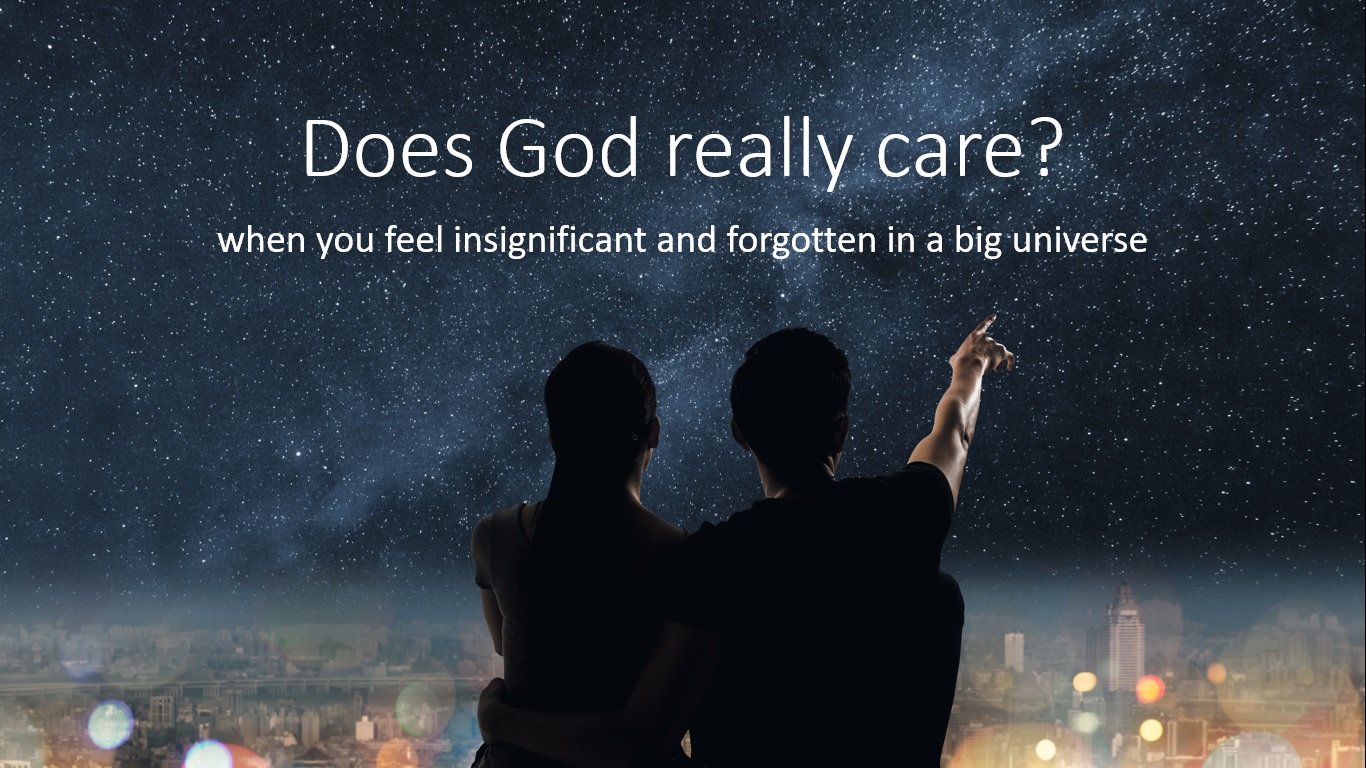Speaking in a debate at Oxford University in 1998, Peter Atkins, then professor of physical chemistry at Lincoln College, ridiculed the theists for believing there was something there, something unknown up there with what we have to spend our time with. way of reflecting his unconditional atheism, and when asked on television a few years later to express his views on god’s existence or not, he replied, “Well, it’s pretty simple: isn’t there God?The question, does God care? is a subterfuge for those who agree with Atkins.
The deists are different. They believe in God’s existence, but claim that after creating the world, he walked away from creation, sees him as someone who marks the marks of a football field and places the goalposts, then observes the game from the stands, without supporting. any of the teams and without being interested in the result. Specifically, they deny that God cares about our weaknesses and failures, and that we can pray for His help.
- The Bible paints a very different picture and the first brushstrokes appear very early.
- After our first parents deliberately turned their backs on God and destroyed their relationship with him.
- The first words God recorded for Adam were.
- “Where are you?”Since God is omniscient (he knows everything).
- It was a rhetorical question; God gave the world’s first sinners the opportunity to confess their sins and seek divine forgiveness; When they refused.
- God rightly punished them.
- But He showed his love for the fallen man.
- Promising that although there was a ruined new world order.
- He would send a Redeemer to save man from his self-inflicted disaster: a promise made by the Lord Jesus Christ.
- Who came into the world to save sinners?(1 Tim 1.
- 15; see Gen.
- 3.
- 15).
God’s concern for his people, both as a nation and individually, is seen as a silver thread throughout the biblical account of human history. He assures one of the Psalmists: “For he clung to me with love, I will deliver him; I’ll make you safe, because you know my name. He will call me and I will answer him; in his anguish, will I be with him, and will I deliver him and glorify him?(Sal 91:14-15).
After God miraculously saved his people from slavery in Egypt, they spent forty years wandering the desert on their way to the promised land. Despite his frequent rebellion, God provided all his needs. Some time later they remembered, “These forty years, the Lord your God was with you, did you miss something?(Dt 2. 7) As another writer said, when they cried out to the Lord in their anguish, did he deliver them from their tribulations?(Salt 107. 6).
On other occasions, people have witnessed God’s infallible attention: a prosperous believer named Job suffered terrible traumas, including the sudden loss of his entire flock, the death of his ten children in a violent storm, horrific illnesses, and disfigurements that made him unrecognizable. this led him to shout: “My mind is consumed, my days are erased and I only have the tomb before me?(Job 17. 1). However, although his faith was severely shaken, he never lost it and confessed to God: “Did he give me life in your goodness of heart and your care kept me?(10. 12).
One of God’s prophets assured his listeners, “Will the Lord care for the armies of the flock?”(Zc 10. 3), and the king of Israel, David, whose life had serious ups and downs, testified, “The Lord is my shepherd?(Salt 23,1).
When we think about how we sometimes treat God, his unwavering concern for us is certainly surprising. No wonder David asks, “Who is the man who remembers him and the son of the man who visits him?”(Salt 8,4). We will never be able to fully understand the answer to this question, but the truth it reveals should encourage us to respond with gratitude to this promise: “Then do you humble yourself under the mighty hand of God?”throwing all your anxiety at him, why is he taking care of you?(1P 5. 6-7).
Moreover, the Bible says that religion that is “pure and impeccable, towards our God?”Does it include visiting orphans and widows in their tribulations?This is a brief description of our responsibility to help meet the needs of the poor, the poor, the disadvantaged, the sick, the disabled, the lonely, the vulnerable and many others whose needs are much greater than our own. and we also have to worry.

